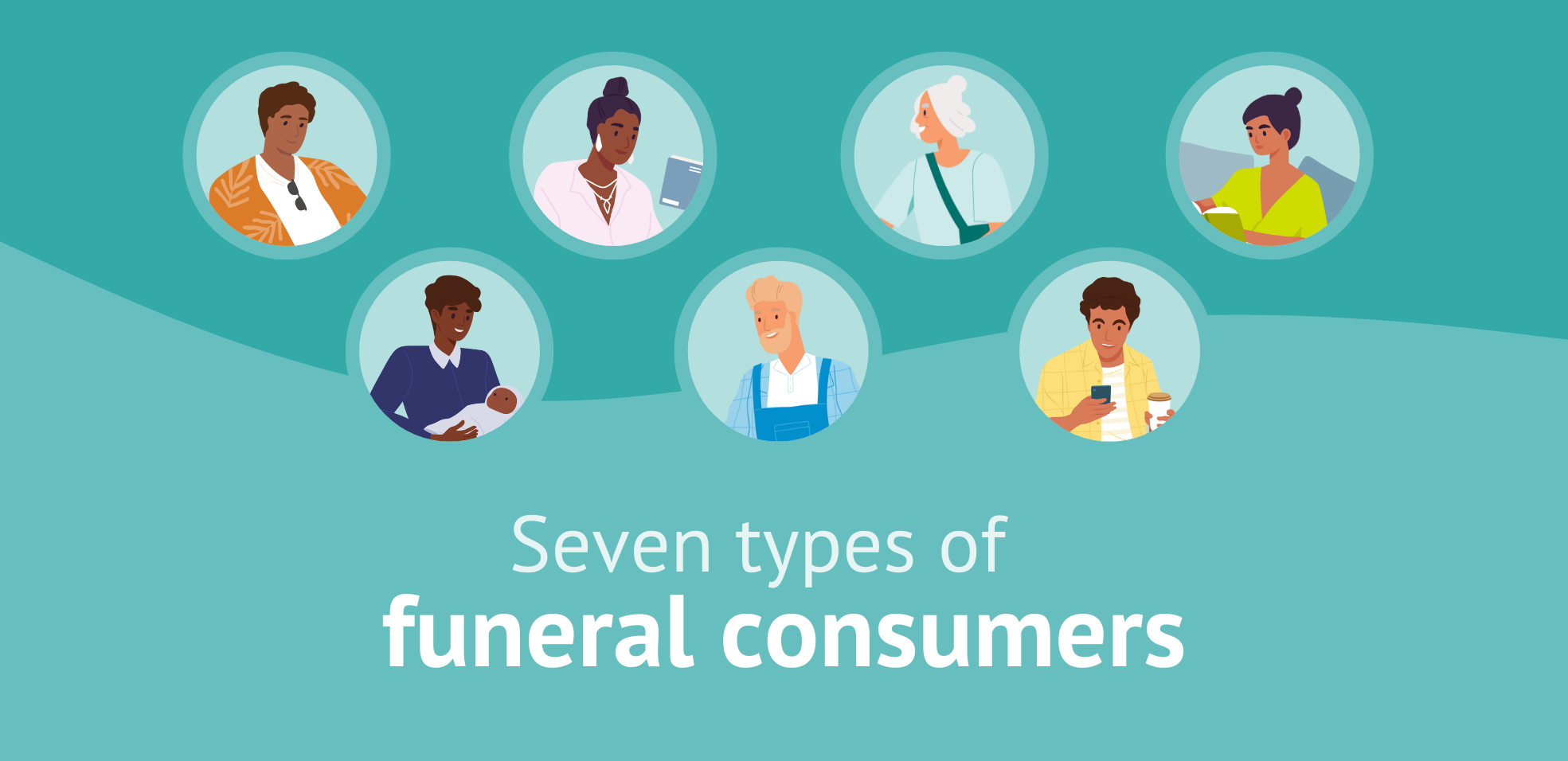The New Funeral Consumer: Solo Secularists
May 21, 2020
By Josh McQueen, Vice President of Product
Change is certainly inevitable, even expected, in this rapidly changing funeral industry. In fact, there are many forces of change within our society that directly affect consumers, including: the technological revolution, dispersed families, society’s limited experience with death, and shifting religious views. Most likely, you’ve had to adjust your way of thinking to keep up with these shifting factors, but here’s something you may not have considered: societal changes can cause a shift in consumer preferences, too. With so many changing societal trends, you may be feeling overwhelmed about how to serve these new consumers. However, in this series of articles, I will reveal the behavior patterns of these new funeral consumers and give you an idea of how to help them.
And the Survey Says…
In 2011, some of the largest funeral homes in the nation started noticing that the customers they were seeing were very different from previous generations. To find out what was going on in their markets, they hired McKee Wallwork + Co, a market research firm, to conduct the largest study ever performed on funeral consumer behaviors and preferences. McKee Wallwork + Co interviewed 3,000 individuals and asked them hundreds of questions to identify consumer preferences and trends.
The study revealed six distinct consumer types, or “personas,” that are in your market today. The consumer types are the Pine-Boxers, Funeral Friends, Polite Farewells, Dead-Enders, Solo Secularists, and Click & Callers. I’ve written articles about the first four types, which are linked above. Now, let’s push ahead to the next group: Solo Secularists!
The Solo Secularists at a Glance
/Solo-Secularist-Circle-min.png?width=216&name=Solo-Secularist-Circle-min.png) With the Solo Secularists, we start to see an obvious trend toward different preferences. In comparison to the other types, this group is the most highly educated with the average person having a master’s or doctorate degree. They are very conscious about the environment and will often pay for environmentally–friendly cremation options. We can also generalize that this group may have contributed to the rise in pet cremations because many feel a closer bond with their pet than they do some family members. Individuals in this type are not religious, but they may describe themselves as “spiritual.” Ultimately, the Solo Secularist does not see a need for a funeral home or funeral. Instead, they are more likely to choose a direct cremation and throw a party to memorialize their loved one. If a funeral home wants to serve this segment well, they need to, as one Solo Secularist put it: “provide new, unorthodox ways to honor my loved one with a celebration of life that is as unique as he was.”
With the Solo Secularists, we start to see an obvious trend toward different preferences. In comparison to the other types, this group is the most highly educated with the average person having a master’s or doctorate degree. They are very conscious about the environment and will often pay for environmentally–friendly cremation options. We can also generalize that this group may have contributed to the rise in pet cremations because many feel a closer bond with their pet than they do some family members. Individuals in this type are not religious, but they may describe themselves as “spiritual.” Ultimately, the Solo Secularist does not see a need for a funeral home or funeral. Instead, they are more likely to choose a direct cremation and throw a party to memorialize their loved one. If a funeral home wants to serve this segment well, they need to, as one Solo Secularist put it: “provide new, unorthodox ways to honor my loved one with a celebration of life that is as unique as he was.”
The Solo Secularists by the Numbers
Here are some more details about this type:
-
53% of Solo Secularists are female.
-
93% of this group is under 65 years old.
-
64% work full or part-time while 11% is retired.
-
The median income for this group is $75K.
-
They are most likely to have an advanced college degree such as a master’s or doctorate.
-
They are predominately located in the West and Midwest.
As mentioned previously, the Solo Secularist type have vastly different preferences from the other types. One of the biggest differences is regarding religion: 57% of Solo Secularists consider themselves agnostic, atheist, or not religious, hence the “Secularist” name. When it comes to funerals, 65% of individuals surveyed believe that tradition and ceremony are important, whereas 98% noted that grieving is necessary. 20% of Solo Secularists stated that it is important for them to see the body, but 18% consider the viewing of a body to be barbaric. Additionally, 19% prefer to arrange services online or by phone and prefer digital communication with funeral home staff.
The Solo Secularist Consumer and You
Overall, Solo Secularists have a neutral attitude toward funerals. They don’t want simple or traditional; they prefer a planning experience that allows them to customize a service. This means they are willing to spend more money so long as it means they can have an elaborate event that reflects the life of the deceased. Consider the following if you serve a Solo Secularist in your funeral home:
-
Look for ways to customize the service. Most likely, they will not want a traditional burial, so offer your expertise but allow them to present their own unique ideas.
-
In lieu of traditional options such as a viewing and a church or chapel service, suggest outdoor events and venues, catering, video tributes, floral arrangements, keepsakes, and audience participation activities, such as a release ceremony, community painting, or tree planting.
-
Emphasize the value of a memorial service in helping the family process their feelings of grief.
In the final article of this series, I will explain the last consumer type: Click & Callers.
For more information about the six funeral consumer personas, including a further break down of each type, download our free eBook titled “The New Funeral Consumer.”








